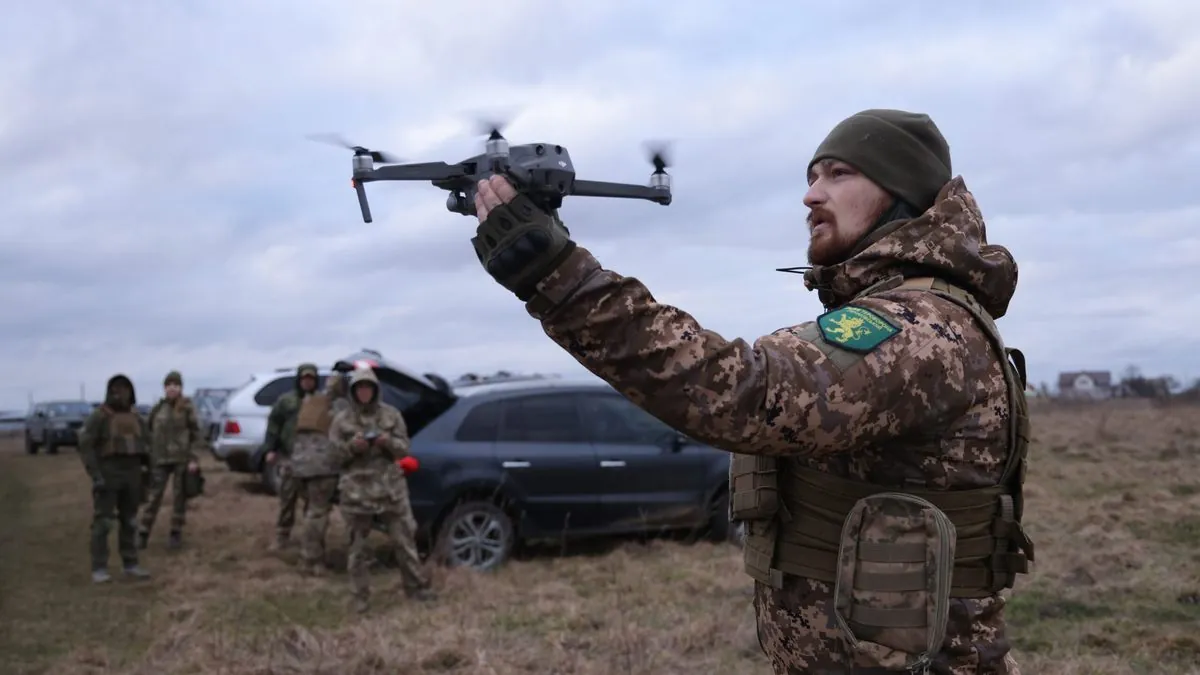In the ongoing conflict between Russia and Ukraine, now in its third year, a simple yet effective tool has emerged as a crucial asset for Ukrainian soldiers. The Tsukorok, or "sugar," is a pocket-sized drone detector that has become highly sought-after on the battlefield. This grassroots device, created by a London-based developer, alerts soldiers to nearby drones with a loud beep, providing vital seconds to seek cover or activate jamming equipment.
A Ukrainian mortar crewman positioned in the Donbas region praised the Tsukorok's simplicity and affordability. This sentiment reflects the device's growing popularity among front-line troops, who face constant threats from Russian drones.
The conflict has highlighted Russia's superiority in electronic warfare, a fact acknowledged by Maria Berlinska, a Ukrainian activist who has been instrumental in developing Ukraine's drone capabilities. Electronic warfare, which involves controlling the electromagnetic spectrum to attack or impede enemy operations, has become a critical aspect of modern conflicts since its inception in the early 20th century.
On the front lines, electronic warfare primarily focuses on the use and defense against reconnaissance and strike drones, as well as long-range missiles. First-person-view (FPV) drones, capable of carrying explosives, are extensively used by both sides. The ability to detect and jam these drones' signals has become a matter of life and death for soldiers.
Russia has successfully employed sophisticated jamming systems to counter Western-made GPS-guided artillery shells and precision munitions. In response, Ukraine is striving to catch up, often relying on simpler, more cost-effective equipment like the Tsukorok. Over 50 Ukrainian companies are now engaged in producing electronic warfare equipment, ranging from basic detectors to advanced jamming devices.
However, the demand for these devices far outstrips supply. Bohdan Danyliv, head of the military department at the Prytula Foundation, estimates that demand could be 50 times higher than current production capacity. This shortage is compounded by logistical challenges in obtaining necessary components.
The rapidly evolving nature of electronic warfare presents additional challenges. Anton Veklenko, chief instructor at Global Drone Academy, emphasizes the constant adaptation required in both technology and tactics. For instance, GPS guidance, once standard for consumer drones, has become largely obsolete due to jamming techniques.
The Tsukorok's popularity surge in late 2023 represents one such adaptation. Dmytro Selin, the device's creator, developed the first prototype in summer 2022, initially focusing on detecting signals from Russian Orlan reconnaissance drones. The device's simplicity allows for widespread use without extensive training.
"I use it as a guide, to know when to use the jammer."
While the Tsukorok is not a comprehensive solution, it plays a crucial complementary role in Ukraine's electronic warfare efforts. As Danyliv notes, "It won't solve everything, but when you have one of those things in your pocket, you feel a lot calmer." This simple device exemplifies Ukraine's innovative approach to bridging the gap in electronic warfare capabilities, demonstrating how even basic technology can have a significant impact on modern battlefields.
